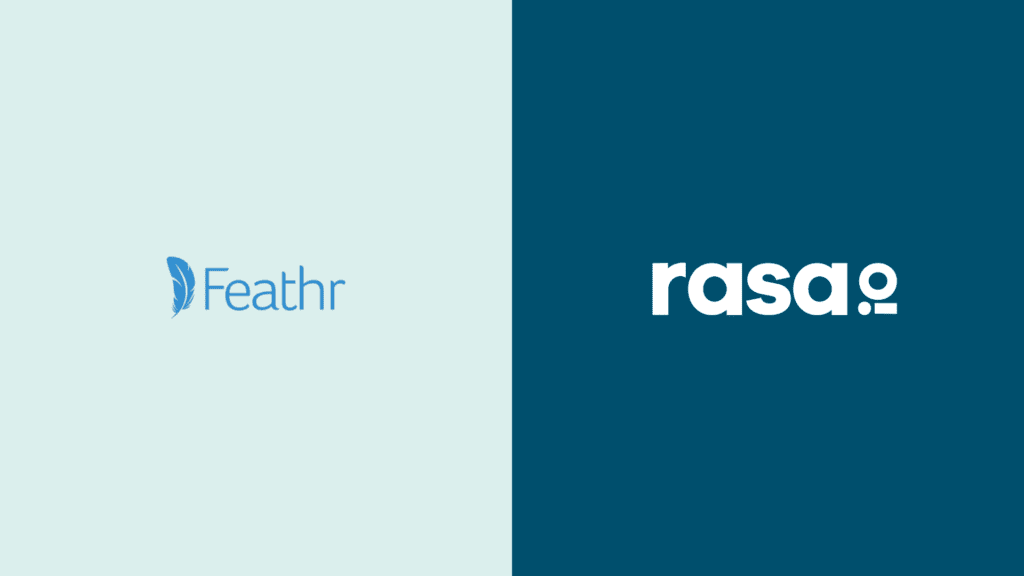David Meerman Scott
How the author of numerous best-selling marketing books thinks businesses should adopt some radical ideas about email marketing. He is sharing how he’s incorporated these radical ideas into his own marketing efforts and will really inspire you to think differently about how you look at email marketing. This is David Meerman Scott’s story about Pushing Send.
David Meerman Scott is a marketing strategist, bestselling author of eight books including three international bestsellers, and a professional speaker on topics including marketing, leadership, and social media.
Key Points From This Episode:
- With email marketing is so important to treat people like humans and humans are hardwired for connection.
- David talks about how newsjacking, which means when the whole world is talking about something, create content to go along with that breaking news, can be a very welcome form of communication. He discusses how Waterfield Design uses this well.
- Contacting someone too often can be a relationship killer.
- David is an avid follower of presidential campaigns and how candidates use marketing. He shares a few great examples of how to market and not to market.
- Giving gifts with no expectation of anything in return is a great way to build fans. David shares how he learned this from The Grateful Dead.
Tweetables:
“Cookie-cutter doesn’t work, being human, being interesting does.” – @dmscott
“Another form of neuroscience that we looked at for the idea of Fanocracy is the idea that giving gifts with no expectation of anything in return is a great way to build fans. Whereas giving content that involves coercion is not a good way.” – @dmscott
“I’m a strong believer t’s way, way better to give something away with no expectation of anything in return. Then try, try to dangle things in front of people to build an email list.” – @dmscott
“I think that if your goal in the universe is to add value to the universe, to build fans, to create valuable things, that people will be happy that they have made a part of their life. That that comes back to you. The universe gives back to you.” – @dmscott
Links Mentioned in Today’s Episode:
Episode Transcript
David Meerman Scott:
And I know that some of these ideas are a bit radical and, um, there are different ways to do things and I’m hoping that some of the listeners will think, Oh, okay, well maybe I don’t need to do what I have been doing. Maybe I can rethink some of the things I’m doing. To not force people, to register, to get a white paper. That’s a bit radical too, to not force product down people’s throats. That’s a bit radical too, to live your life. That the more you give, the more you get that’s a little radical. It really is. It’s not the way that most people operate.
Bryan Kelly:
From rasa.io, the free tool for sending smarter and better email newsletters. This is Pushing Send` a show featuring people who send emails their subscribers actually want to read. I’m Bryan Kelly, and on today’s show how the author of numerous best-selling marketing books thinks businesses should adopt some radical ideas about email marketing. Here’s David Meerman, Scott sharing his thoughts. You mentioned how some of the ideas we’ll discuss are radical, but I’ve observed, there’s a disconnect with reality for most of us, because it’s like, would you act this way If you were face-to-face with somebody?
David Meerman Scott:
No. I mean, the equivalent, the equivalent is, I mean, if we weren’t in COVID, I’ll give you the example, the equivalent, as you go to a party and you meet someone who’s interesting and normal people have a conversation and enjoy the company of that other person they’ve just met. And then maybe after they’ve spoken for a few minutes, Hey, let’s go over to the bar together, grab a drink and let’s have a little more of a chat. Yeah, great. Let’s do it. And then at the end of that, you know, gosh, I’d really like to, to maybe connect with you again someday. May I give you my mobile phone number? You know, something like that, what most people do in the email world is they walk up to somebody at a party. And the first thing they say is, give me your email address here. Right? That’s what that coercion technique is. That’s what the white paper dangling with the email requirement is.
Bryan Kelly:
Exactly. You’d be like, get away from me.
David Meerman Scott:
I don’t think so. Yeah. Or are going to go into the middle of the party and yell at the top of your lungs. I am an insurance salesman who wants to buy insurance. That’s not gonna, that’s not gonna work either. And that’s what, that’s what a lot of people do.
Bryan Kelly:
Yeah. As everybody moves a couple feet away from you. So most of your book, Fanocracy, which is filled with these radical ideas is about engaging your market, connecting with your customers. And so many of us squander this opportunity. How do you see all of this applying to email marketing?
David Meerman Scott:
So I think what’s really, really important is to make sure that you are treating the people who are reading emails that you sent as humans, as people, as individuals and what I see, it doesn’t matter the channel. But what I see that is just not breaking through anymore is the stuff that’s just focused on trying to sell product and service. And we’ve all been there where you buy a product online, or you buy something in a physical store and then you get on an email list and they’re immediately trying to hit you up to buy something else. And that just doesn’t work. It just doesn’t work. I think as much as you can with any channel, it’s not just email with any channel. You have to try to come up with a human approach. And very specifically, my daughter Reiko, and I wrote this book called Fanocracy, turning fans into customers and customers into fans. And one of the things that we dug real deep into is the idea of this personal kind of connection, this human connection and we, humans are hardwired to want to have a connection with other people. It’s how it’s a survival instinct. It’s a, it’s how we get along as we want to have those human connections. So when you can build those human connections into an email channel or into any channel for that matter, it’s going to be way more successful. My daughter now is 27 years old. When she, we started writing, she had just entered medical school. She’s now graduated from medical school and she’s an emergency room doctor at Boston Medical Center. And one of the things that Reiko talked about a lot in the book was the idea of how a doctor talks to a patient in order to provide the best health care. And in her experience as a young doctor, she says, the vast majority of doctors are only interested in the symptoms. They’re only interested in learning, you know, what does the data say about this particular person? And they don’t treat those individual patients as individual humans. They treat them as someone who has a group of symptoms that mean something. And that’s kind of an interesting analogy to what I’m seeing with email and with other digital channels that if you simply say, Oh, this person is this particular either demographic, therefore I should sell them why that doesn’t work as well as if you can try to humanize and approach. So in the medical world, it means understanding the person’s backstory. It means understanding who they are as a person. What motivates them? What do they love to do? Do they have a family? Are they happy? Are they employed? Where are they employed? All of those sorts of things are indicators of health and why that person might be at the hospital, or it might be in the doctor’s office. But I think the same thing applies, you know, when we just try to force ourselves on people and everything is cookie cutter, one size fits all. It does not work as well.
Bryan Kelly:
Yes. I’ve experienced that firsthand myself. I like the idea of putting the needs of your audience front and center. And I wonder if there are any brands that you’ve seen do this when it comes to email?
David Meerman Scott:
Well, I, I don’t like to look at it simply as email. I like to look at it much more as a broad approach to how an organization communicates. Because I think if you look at email in isolation, it’s all crappy. It’s all terrible. I mean, it’s just truly awful stuff. You know, it’s just organizations that try to get you to buy the next thing. It’s not engaging. It’s not helpful. Like the vast majority of people out there, the email lists I’m on grow like mushrooms and I’ve probably unsubscribed to 20 email messages a day. It’s just unbelievable. And so when I think of some organizations that look at a holistic approach, rather than just email as a channel, one that comes to mind is called Waterfield Design. They do bags, they do high-end backpacks and other kinds of bags they’re out of San Francisco. And I really liked them because they seem to email me in the right cadence and the right frequency whenever they email me, it’s something that I feel like I want to open.
David Meerman Scott:
There’s almost always a link to a video where I can see the bag that they’re talking about or understand what they’re talking about. And they also do a technique that I invented called newsjacking. And I don’t know whether Gary Waterfield and his company even would use that term, but newsjacking is the art and science of injecting your ideas into a breaking news story, which essentially means that when the whole world is talking about something, if you create content, certainly can be in the form of an email that’s related to that breaking news. That can be a very welcome form of communication. So specifically with Waterfield Design, whenever there’s a new, um, device, that’s announced by Apple, they will immediately create a bag. If it’s a computer or immediately create a case, if it’s an iPhone. And I mean, it is like super fast. It says it’s within a few hours. I mean, so they, they sign up to get the first, they wait in line or sign up to get the phone when it’s first released. I don’t think they’re able to get an early release or get the specs. Uh, although I might be mistaken, they certainly get that first thing off the line, or they’re first in line waiting at the Apple store, near their factory. They grab one of the phones and they immediately make a prototype. And then Gary Waterfield himself has a video where he’s describing what the, what the case looks like. And to me, that’s welcome because even if I’m not, even if I didn’t buy the, that particular new model iPhone, I think it’s cool that they care enough to recognize that a number of their customers will be buying that new model and that they want to get a case. And that Waterfield is on, on the job. They’re creating that case exactly when they need it. So they’re an organization that I appreciate.
Bryan Kelly:
What about something you’ve seen? That’s a no-no in your book?
David Meerman Scott:
The worst thing, at least for me, I don’t know about other people, but at least for me is contacting me too often. So many times it’s like, I don’t know why they do it, but you know, you get, you got one email a week and then you get two a week and you get to a one a day and you get two a day and you get five a day. It’s like, what are you doing? Unsubscribe. Bang. It’s like, you’ve just, you’ve just killed a relationship with me. You, you had me as a fan and now I’m not. Why didn’t you do that?
Bryan Kelly:
Well, I think the Waterfield Design example is perfect.
David Meerman Scott:
Yeah, no, that’s right. To me, their approach is always informational. I mean, yes, they want to sell product. That’s obvious, but I see so many organizations where it’s promotional and they base the emails on some kind of price drop or free shipping or act now and get 20% off or whatever that doesn’t motivate me. I always want to save money. Sure. But I’m not going to buy your stupid bag because it’s 20% off. I’m going to buy it because I want to buy it. I don’t care the price. So what they do is they try to focus on showing me why this particular bag is going to be interesting to me. Now I have to admit, I do have a bit of a bag fetish, I think I own, so, so they figured out that they must have figured that out. Cause I think I own one, two, three, I’m looking at three of their bags right here right now. And they’re not cheap. Like 200-300 bucks. I have two backpacks from them. I have, I think one kind of duffel bag style. And I have a couple of small kind of cases for, um, various bits of electronics that I carry around. So they’ve figured me out, man. They figured me out where all those other companies I’ve unsubscribed.
Bryan Kelly:
When we come back, David provides some additional examples. Plus he tells me how he’s incorporated these radical ideas into his own marketing efforts. I’m Bryan Kelly. And you’ve been listening to Pushing Send from rasa.io.
rasa.io:
Creating email newsletters takes a lot of time. You might curate articles, write content, tweak your template and look up metrics and not to mention you’re probably doing all of this once a week. well at rasa.io, we said enough and built a free tool to simplify the process, which saves you time. It also uses AI to personalize emails for each subscriber based on their interests. That means they get stuff they like to read. I want to see how it works? Visit www.rasa.io and click how it works.
Bryan Kelly:
Welcome back to Pushing Send, I’m Bryan Kelly. David Meerman. Scott knows a lot about marketing and as someone who the founders of HubSpot turned to as an advisor from their early days, all the way, even still to today, we should listen carefully to what he says. Here’s David again. So you’ve written about how to become more human marketing by utilizing humor. And an example you gave was something from a Joe Biden campaign email. Can you talk about why that was a great example of humor in action
David Meerman Scott:
Rather than talk about that particular one, I’ll talk about a slightly different one. Um, I’m a huge geek about presidential politics marketing. So not the politics piece, not which candidate I support, not which candidate has a different, has a particular take on the issue, but the actual approach that they use for marketing, I’m a real geek about it. I love it. And it’s for the last five presidential cycles. So we’re talking 20 years, I’ve dug in deep in analyzing how the different candidates do their marketing from the primaries onto the general election. I happen to live outside of Boston and I’m on very close to the border of New Hampshire, New Hampshire, of course being the first primary state, but also over the last couple of cycles, it’s also been a swing state. So all of the candidates tend to go through New Hampshire and my wife and I, it’s a weird hobby. We have, I admitted it’s a weird hobby, but we drive up to New Hampshire and go to the political rallies. So in this cycle, the 2020 cycle during the primaries, we saw 20 different democratic candidates’ events. And what I’m looking for when I go and what I’m looking for to do with this approach is see, and I always give my email address and I always give my mobile phone number so they can text me. And I’m interested to see what they’re going to do and darn it if the candidate that does the best marketing is often the candidate that wins it’s really uncanny It’s very, very interesting to me. I’ll give you two examples of that. So the first example is that during the democratic primaries, Oh, and by the way, in this cycle, I also went to a Donald Trump rally and the, and the 2016 cycle because both the Republicans and the Democrats were in play. I went to a bunch of Republican candidates. I’m not suggesting that I’m only going to the democratic candidates. I’ve been to three Donald Trump rallies over the, over the two cycles. First thing that was fascinating to me was that the majority of the democratic candidates use the same platform, the same technology for their email communications and their text communications, literally the same technology. And in many cases, it seems as if they’re using the same consultant, because I have examples where they’re identical to one another identical, identical, and there’s only geeks like me that would figure this out because I went to 20 different democratic candidate events in this particular cycle. It was just really interesting that they were identical. And I’m going to see if I can find examples of it.
Bryan Kelly:
While you’re looking for that. What was the response you had to these messages as a recipient?
David Meerman Scott:
I just thought, what are you doing? Doing, what are you doing here? This is like the silliest thing. So, okay, so I’m gonna read you an email. Uh, no, this is actually a text message that I got from Cory Booker. Hi David explanation point team Corey is excited to see you tomorrow at 10:30 AM at 275 month road, Londonderry, New Hampshire. Remember a reply yes. To confirm or more for more details. And then I reply. Yes. And they say, great. They need all hands on deck and are counting on you. Thank you. Then I got this text message. Hi, David Kamala Harris for the people is excited to see you tomorrow at 10:15 AM at two 29 main street Keene New Hampshire reply. Yes. To confirm a more, more for details. So I reply. Yes. Great. They need all hands on deck and are counting on you. Thank you. Hi, David Joe Biden for president is excited to see you tomorrow at 12:00 PM at eight 45 Lafayette road Hampton, New Hampshire reply. Yes. To confirm or more for details. Yes. Great. They need all hands on deck and are counting on you. Thank you. Hi David Julian for the future. That’s Julian Castro is excited to see you tomorrow at 6:45 PM at four 75 central Avenue, Dover, New Hampshire reply. Yes. To confirm or more for details. Yes. Great. They need all hands on deck and are counting on you. Thank you. And so that’s four candidates that had word for word, the exact same messaging. And I see that a lot. I’m not necessarily into candidates, but where somehow someone decides that there’s a best practice, wherever that best practice may come from. It may come from the email provider or in this case, the text provider, or it may be, may come from some consultant or it may come from some guy who wrote a book that’s coming from someone who wrote 12 marketing books, by the way. So someone wrote a book and people are, are using it word for word. And so I just thought that was just unbelievable. And I would contrast that happens to be Elizabeth Warren. I put this into my example, Elizabeth Warren also sent me messages when I, when I signed up for her event. And it said, thanks for joining team Warren and conquered reply with your zip code to sign up. So I replied to my zip code. She said, thank you, Elizabeth has bold plans for New Hampshirites and she can’t wait to meet you reply with your first and last name to finish signing on which I did. And then here’s, what’s super interesting. When I arrived at the event, it said text to a certain number when you’ve arrived. So I texted and said, great, thanks for being here, David, we’re looking forward to seeing you. Here’s a picture of my dog Bailey. When you get to the front of the line, show the picture of Bailey and we will usher you in first. Now, how core is that? Right? How cool, how cool is that, that number one, she’s not using the stock language that the other candidates are using, but number two, that she uses something personal, her dog Bailey as the ticket to get in. So, um, I mean, Elizabeth Warren didn’t win, but her marketing was really, really interesting. Um, and I’ll give you one more example, and this is a much more recent example from the Joe Biden campaign. And that is during the vice presidential debate. The biggest meme by far of the vice presidential debate was when the fly landed on Mike Pence’s head and sat there for two minutes. I mean, it became a really, really big meme. And most people remember that incident with great delight because it was hysterical. And so within, I think it was within two or three hours, I got an email from the Biden campaign. And again, I’m telling you, I, I’m not telling you that I’m supporting any one candidate or another. I subscribed to all of their emails, but I got an email from the Biden campaign a couple of hours later. And it said, uh, for a $10 donation, you can have a Joe Biden signature flyswatter. And it was literally a flyswatter that said Biden Harris on it. And it cost 10 bucks and they didn’t need to say why they were sending that email or what the flyswatter was for. It was absolutely perfect as a marketing email and it, to me, it was like, that is awesome. I think what you’re hearing the theme here for me, Bryan, is that cookie cutter doesn’t work, being human being interesting does.
Bryan Kelly:
So how have you incorporated these ideas into the work that you do? For example, I’ve noticed on your website, there’s no opt-in forms for people to sign up, to get your free road resources. Like they’re just there, you can just get them.
David Meerman Scott:
Another form of neuroscience that we looked at for the idea of Fanocracy is the idea that giving gifts with no expectation of anything in return is a great way to build fans. Whereas giving content that involves coercion is not a good way. And this actually, I first encountered this approach when I was, when I was a teenager 40 years ago, because I’m a huge fan of the Grateful Dead. And I’ve seen 75 Grateful Dead concerts. And that’s where I first became exposed to this idea of fandom. I remember the reason I became a fan of a Grateful Dead is because the Grateful Dead was the only band that I knew of that allowed fans to record their concerts. And back in the 1970s and 1980s, they were the only band that allowed that every other band on the ticket, it would say no recording allowed. And if you tried to bring in recording gear, they would take it away or kick you out. But the Grateful Dead said, sure, why not? And so my friends back then it was cassette tapes, but my friends traded cassette tapes. People would record them at the shows and that’s how we got exposed to the music. And now it’s MP3 files and what did that result with for me resulted that my first show that I saw was in when, uh, when I was 17 years old and I’m now nearly 60, I’ve gone to 75 shows. I’ve probably spent $50,000 on the band with tickets and merchandise and all of the different bits of music I’ve purchased over the years, the live streams I’ve subscribed to, you know, I’ve spent a lot of money with them, the Grateful Dead. It was all because they gave him boy free content with no expectation of anything in return. And what I see so many organizations doing is they say, here’s my white paper. Okay, cool. Maybe I’ll take a look at your white paper and then, but then the company says you can’t have my white paper. You have to give me something first. I’m not going to give you my white paper until you first, give me your personal details, your contact info. That’s a coercion technique that is not giving something away for free. That’s a coercion technique. And I’m a strong beliver t’s way, way better to give something away with no expectation of anything in return. Then try, try to dangle things in front of people to build an email list. I believe strongly that when you develop a fan first and then they want to subscribe to your list, that’s way better than coercing someone into subscribing to a list because they want to get something and then annoying them and then having them go away. So it’s a very different technique. It’s, counter-intuitive the vast majority of people who, who pay attention to how to generate email lists, disagree with me, but the Grateful Dead have been around for 55 years. They’re one of the wealthiest bands on the planet. And so I use this technique myself. Yes, you can subscribe to an email list where you will be alerted whenever I write a new blog post, I don’t see that as subscribing to my list, you know, in quotes my list. I see that as a courtesy, that if you want to know about my latest blog posts, then I will alert you when it’s posted.
Bryan Kelly:
That’s a very interesting perspective.
David Meerman Scott:
I think that if your goal in the universe is to add value to the universe, to build fans, to create valuable things, that people will be happy that they have made a part of their life. That that comes back to you. The universe gives back to you. I’m a huge believer in that. That’s been how I’ve run my life and it’s been fabulously successful for me. These ideas have helped me personally, and these ideas have helped thousands and thousands of other people who have read my work, read my books and done the same things as me. And you mentioned HubSpot. I’d like to talk about HubSpot for just a second. So I joined the HubSpot advisory board in 2007. I was the very first advisor to HubSpot Brian Halligan, the CEO. And I totally agree on this idea of building fans so much so that he and I teamed up with Bill Walton, the three of us. And we wrote a book called Marketing Lessons from the Grateful Dead. And I know Brian really well. And Brian is building HubSpot on these very ideas about building fans, about giving tremendous value about giving things away about educating the market, not trying to coerce the market about not just trying to sell product, but providing ideas that people can have access with for free. They have over just under a hundred thousand clients now from a standing start at zero. When I joined them in 2007, they are on track to do nearly a billion dollars worth of revenue in the next 12 months. According to what the earnings said, they’ve now got a $17 billion market cap. I mean, just crushing it based on the ideas I just talked about. Who’s Brian and I are. He’s seen the Grateful Dead more often than I have. I’ve already seen them. 75 times. Brian has probably 150 and Bill Walton is 850. I mean, we’re, we’re the three of us are dug in deep into these ideas of the Grateful Dead. And so people sometimes push back and say, David, I have to build a list. I have to dangle things in front of people and coerce them into signing up for my email list. And I said, no, you don’t look at the Grateful Dead. Look at HubSpot. Look at, look at what I’ve been able to accomplish. Look at what thousands of other companies have been able to accomplish.
Bryan Kelly:
David offered up some thought provoking ideas that honestly are a bit tough to reconcile as a marketer and perhaps not everything he shared fits with your business, but I guarantee his challenge can make you think differently about how to utilize email marketing coming up on our next episode, we’ll hear from Brendan Kane, best-selling author and marketing expert, who has a brilliant point of view. Brendan explains how he thinks about email in context of selling more books. Plus he shares a mindblowing process for getting emails, optimized to best resonate with his audience. What he told me, made my jaw drop to the floor. You most definitely do not want to miss with Brendan chairs. So if you’re listening to Pushing Send for the first time, be sure to subscribe at Apple podcasts or wherever you’re listening. So you don’t miss an episode. And if you’ve enjoyed what you’ve heard, I’d encourage you to check out some of our other episodes while you’re here. Lastly, leaving a review will help us share these stories with other people, just like yourself. Thank you for doing that. We really appreciate it. I’m Bryan Kelly, and you’ve been listening to Pushing Send from rasa.io.














